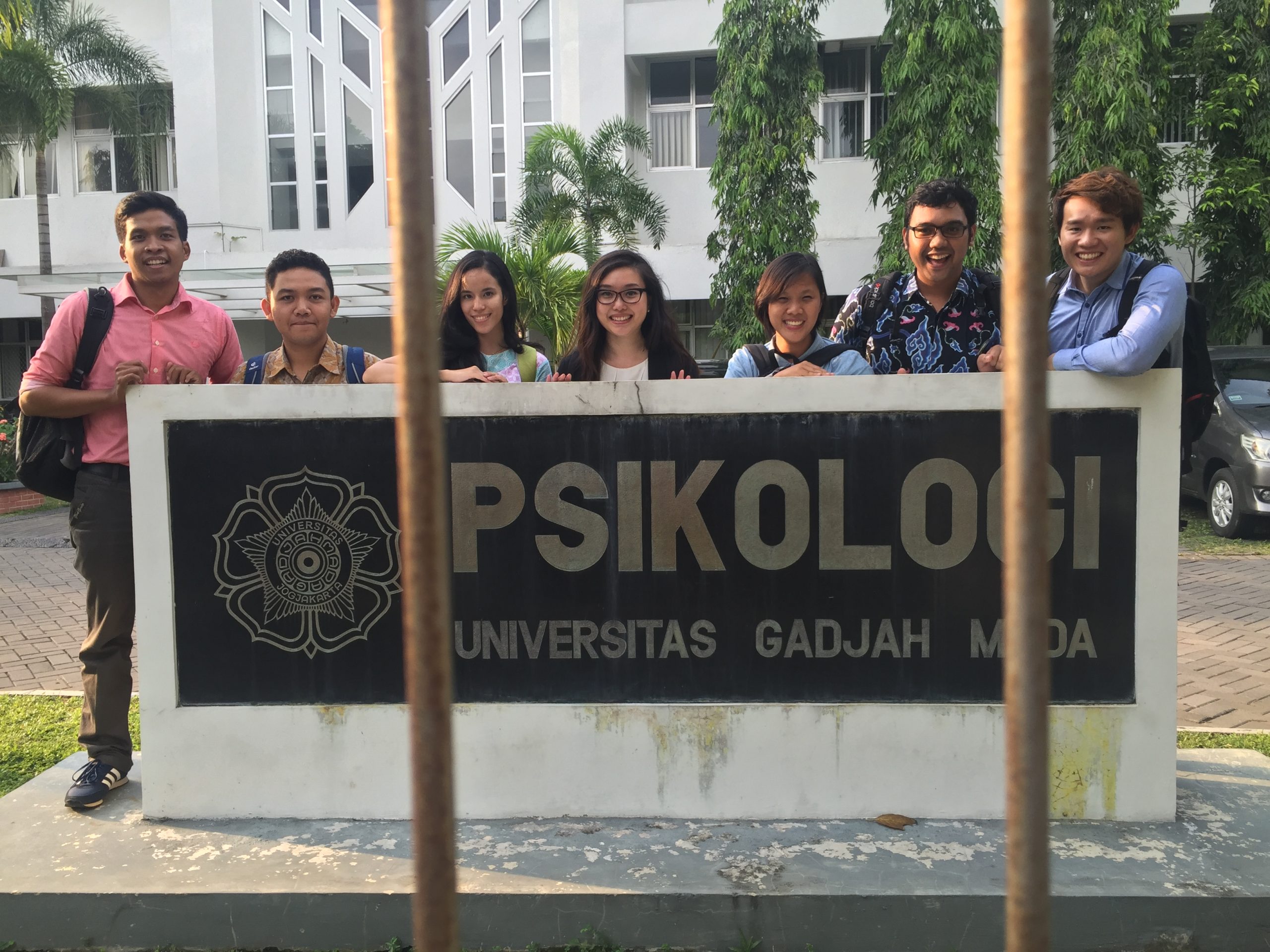
Sabrina Anjara on researching how to provide adequate mental healthcare in Indonesia.
The concept of mental health as a Cinderella issue is true in academic settings as well as in clinical care. Funding is extremely limited for early careers researchers in this area. There is a real need for younger academics to enter the field of global mental health, but the career path needs to be attractive enough to get them to stay in the field.
Sabrina Anjara
Only one of 20 people with mental illness in Indonesia have access to treatment. The rest are vulnerable to chaining, shackling, and a plethora of other cruel practices common in low and middle-income countries, which renowned psychiatrist and medical anthropologist Arthur Kleinman dubbed a `failure of humanity’.
Sabrina Anjara [2014] has a long-standing interest in mental health, having trained and worked as a psychologist in Melbourne, London and Singapore. She was born in Indonesia, a nation of 260 million people, where only 1% of the country’s health budget goes to mental health and there are fewer than 1,000 registered clinical psychologists. Indeed, mental health has been considered the Cinderella of healthcare due to underfunding despite recent research indicating the burden of mental illness accounts for 32.4% of years lost to disability worldwide.
For Sabrina, the crucial question is whether adequate mental health care can be provided in low resource settings where psychologists and psychiatrists are few and unaffordable. Her PhD has sought an answer to this question, but throughout the journey Sabrina has faced multiple challenges, showing that it is not only in clinical care that mental health is a Cinderella issue.
When she applied to do her PhD, Sabrina’s research proposal was to conduct the Indonesian component of a multi-country WHO project on mental illness and human rights. Prior to her arrival in Cambridge, the WHO dropped Indonesia from the collaboration. She took on the challenge to fill the resulting gap and develop her own project. Sabrina got in touch with professors within and outside of Cambridge to discuss potentially meaningful projects. She then attended several international workshops and summer schools to learn advanced research methodology. Together with her supervisor, Dr Tine Van Bortel, Sabrina developed a mixed method project combining ethnography, a clinical trial and implementation science. Her examiners considered the new proposal too ambitious and advised a reduction in the scope.
Sabrina is not known for her lack of ambition. She has long been dedicated to using academic research to address pressing social issues and create change. Prior to coming to Cambridge her master's thesis – the first empirical study of the quality of life of foreign domestic workers in Singapore – was used by advocates of foreign workers’ rights to campaign for better working conditions.
Nevertheless, she narrowed her focus to the most time sensitive aspect of her proposal: testing the clinical and cost-effectiveness of the WHO’s Mental Health Gap Action Programme in the Indonesian context. The programme aims to scale up services for mental, neurological and substance use disorders, especially across low- and middle-income countries, through training non-specialist health workforce, such as General Practitioners and nurses, to provide mental health care in primary settings. The prevailing flow of medical knowledge from high-income countries to low- and middle-income countries has been criticised as medical imperialism. Sabrina felt it was important to evaluate whether the suggested WHO model could indeed yield positive effects in her country’s settings.
She designed a Cluster Randomised Controlled Trial which within the Indonesian primary care service to ethically conduct a statistically robust study which eliminated the need to delay treatment for a control group.
Funding challenge
A major challenge was coming up with the money to fund the trial. Sabrina wrote more than 10 grant applications, which she says taught her a lot about what funders prioritise and the importance of not just impact, but also prudence and good stewardship of funds in scientific areas where resources are tight. Many of the grant-giving organisations she approached said they were interested, but they could not fund a project led by someone who didn’t yet have a PhD. Where some might have given up and switched focus, Sabrina stayed committed to the project, true to the values of the Gates Cambridge Scholarship. With a green light from the Gates Cambridge Trust, she set up a crowdfunding campaign. She further received a travel award from the British Psychological Society and secured awards from various funds within the University of Cambridge, including the Department of Social Anthropology who funded a project on the traditionally held beliefs on the causes of psychiatric symptoms and appropriate pathways of care which Sabrina conducted alongside the trial.
In addition to the Herculean task of securing funding, Sabrina also had to reconcile the often-non-aligned interests of the stakeholders in the study. In a society where rent-seeking and bribery still constitute common ways of conducting affairs, some stakeholders pushed for cash benefits. Many saw the University of Cambridge name and assumed the project was well-funded. To maintain the project’s academic integrity, Sabrina invested time to build partnerships with a local university and the provincial health office, ever transparent about her limited funding. Several prominent academics and bureaucrats from Indonesia alongside a senior statistician from the WHO Centre for Research and Training in Mental Health and Service Evaluation in Italy stepped up to be her external advisors and contributed their time pro bono, helping her to navigate the intricacies of field research.
Early results
She succeeded in collecting data from 28 sites across Yogyakarta, a province and Sultanate within Indonesia. The trial screened around 9,000 primary care patients. More than 800 patients who had an indication of psychiatric morbidity were given full psychiatric interviews and 400 patients are receiving ongoing treatment. While the data is still being analysed, Sabrine is convinced of its value. “If we can prove that GPs can provide as effective mental healthcare for mild to moderate conditions as that provided by clinical psychologists it would revolutionise mental healthcare, not just in low resource settings but in all places where there are few specialists,” she says.
Her preliminary research data indicates that given the choice, patients in Yogyakarta were significantly more likely to want to see a GP than a psychologist for a mental health problem. Sabrina argues this is due to the strong stigma around mental illness. “At a glance, perhaps the WHO programme works because people are more accepting about seeing a GP than a psychologist. It is better to have basic mental health services provided by a GP, than to receive no treatment at all,” says Sabrina. “Given the high costs of training specialists, low and middle-income countries must rethink the best ways to allocate the already limited mental health budget.”
Sabrina is currently finishing her data analysis and will be writing up in early 2018. She hopes to grow the impact of her work on the mental health landscape in Indonesia and feels that it’s time for a change in attitudes to the subject. “The concept of mental health as a Cinderella issue is true in academic settings as well as in clinical care. Funding is extremely limited for early careers researchers in this area. There is a real need for younger academics to enter the field of global mental health,” she says. “But the career path needs to be attractive enough to get them to stay in the field.”
Photo: Sabrina supported by collaboration with local partners (Universitas Gadjah Mada Faculty of Psychology and Faculty of Medicine).

Sabrina Gabrielle Anjara
- Alumni
- Indonesia
- 2014 PhD Public Health and Primary Care
- Queens' College
Sabrina was the first Gates Cambridge Scholar from Indonesia. Her PhD at Cambridge was a clinical trial of the implementation of mental health services in primary care clinics. She completed a Postdoctoral Research Fellowship at University College Dublin, studying how collective leadership in healthcare influences patient outcomes. She is now leading the Metaverse research theme in Accenture's Human Sciences Studio.
Sabrina holds a BA in Psychology and Asian Studies from the University of Melbourne, and an MSc in Organisational Psychiatry and Psychology from King’s College London. Before Cambridge, Sabrina researched medical education in the National University of Singapore and spent some years as a Psychologist at the Ministry of Social and Family Development, Singapore. She’s a World Economic Forum Global Shaper.












